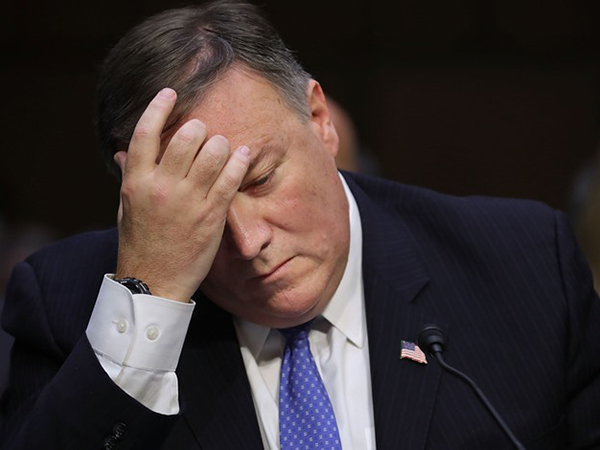In a post on his Twitter account on Monday, Iranian President Hassan Rouhani’s senior advisor Hessamoddin Ashena responded to US State Secretary Pompeo’s call for an interview with the Iranian media.
“The US government does not force the media outlets to do an interview with (Iranian Foreign Minister Mohammad Javad) Zarif. The Iranian government cannot force the media to have an interview with Pompeo either,” he tweeted.
“Zarif has never made any request for an interview; indeed, he is an attractive figure for the American media. Pompeo should also try to become more attractive to the Iranian media,” Ashena noted.
His comments came after Pompeo said in a July 25 interview with Bloomberg that he would “happily” go to Tehran and willingly appear on Iranian television to explain US reasoning behind its sanctions against the Islamic Republic.
A few days later, the Iranian administration’s spokesman invited Pompeo to be interviewed by Marzieh Hashemi, an American-Iranian journalist and anchor at Iran’s Press TV who was once detained in the US.
Ali Rabiei said Sunday that Pompeo had been “forced” into saying he was ready to appear on Iranian TV because of Zarif’s recent round of interviews with the US media during his UN trip in New York.
In the meantime, the Iran Front Page news website sent an e-mail to Pompeo’s office voicing readiness to have an interview with the US secretary of state, but the offer was declined.
Mike Pompeo’s request for an interview with Iran may have provided some fodder for advocates of Iran-US talks, but he does not appear to have any new or surprising message for Iranians.
Pompeo has all the hallmarks of an anti-Iranian politician, either as a member of the US House of Representatives, a director of the Central Intelligence Agency (CIA), or as the US secretary of state at present.
Pompeo has expressed his hostility to Iran so explicitly in the past that the name or nationality of the interviewers would not change anything about his policies or result in any attractive offer from the hawkish secretary.
Iranian officials have made it clear for Washington that Tehran judges the other states by their measures and deeds, not mere words.
In a Twitter post reflecting his unease about Iranian Foreign Minister Zarif’s interviews with the American press in the US, Pompeo decried what he called Iran’s “bad regime” for refusing to let him do the same thing in Tehran.
Weirdly ignorant of the fact that new communication technologies have facilitated the exchange of messages, Pompeo has insisted that people of Iran should hear “the unfiltered and unabridged truth”.
Canadian philosopher and media theorist Marshall McLuhan has called the contemporary era the age of communication, and has explained how the global village has minimized relations by compressing them in terms of time and location.
It is no more necessary for a person living in the age of telecommunication to cross the geographical border and travel to Iran to talk to people.
The US secretary of state has bemoaned the fact that Foreign Minister Zarif has the change to have interviews with the American media in the US, but has also ignored the fact that such enthusiasm for talking to Zarif is not because of his physical presence in the US, as a host of other foreign officials had taken part in the UN conference in New York as well, but hardly any of them received such attention in the American press.
The US secretary of state had better listen to the Iranian presidential advisor’s advice and judge whether he will enjoy the same amount of attention, like Zarif in the US, if he ever travels to Iran.
